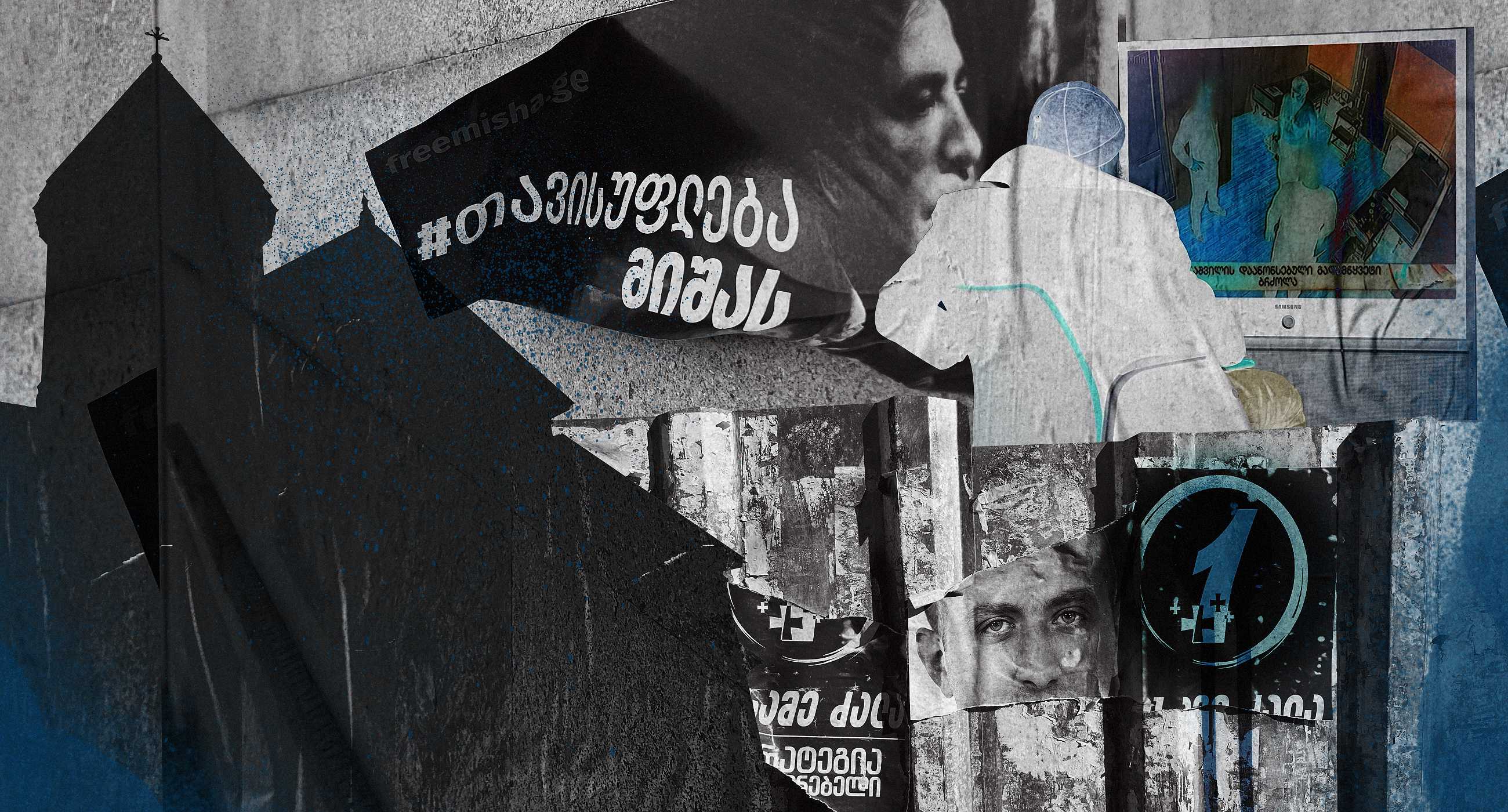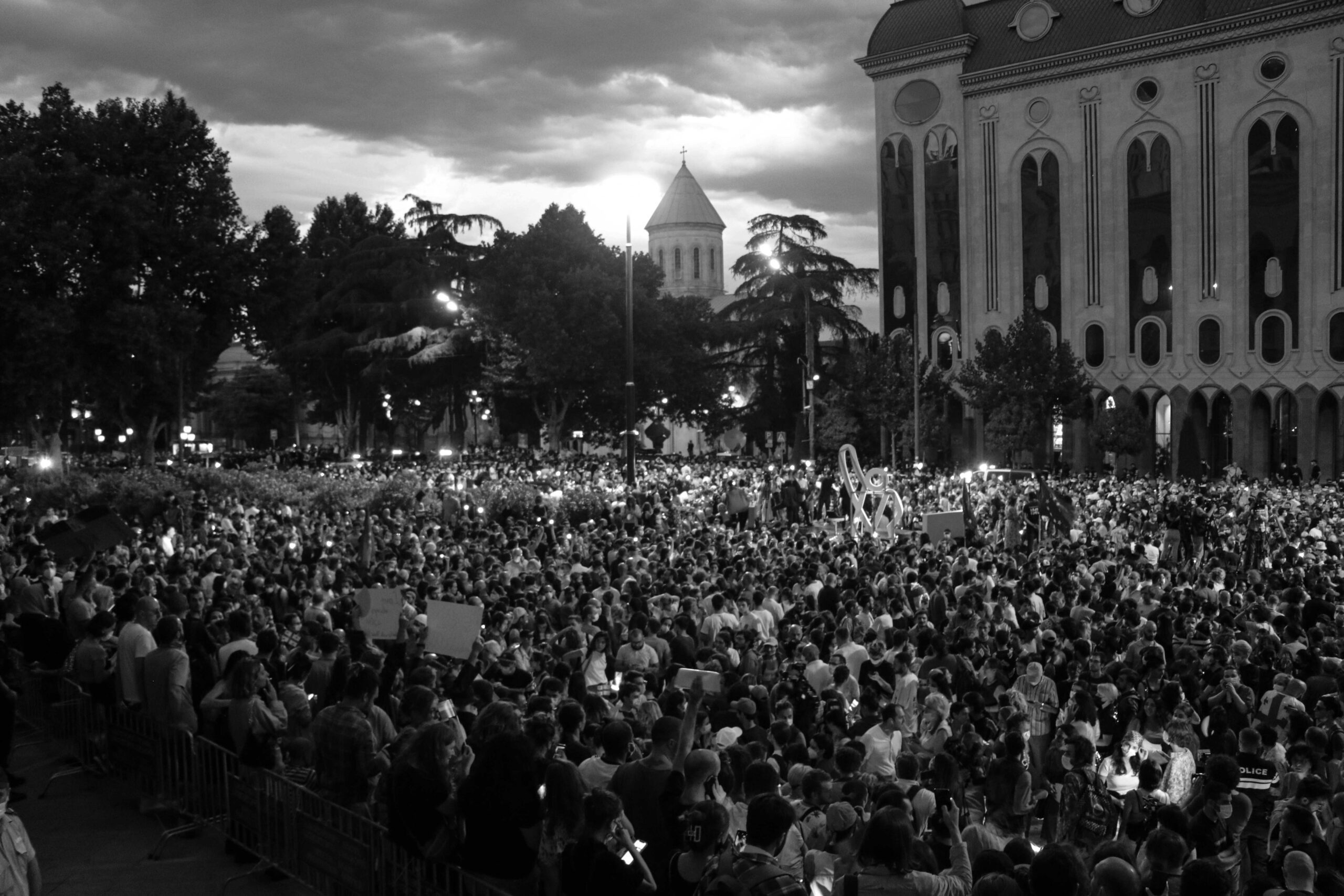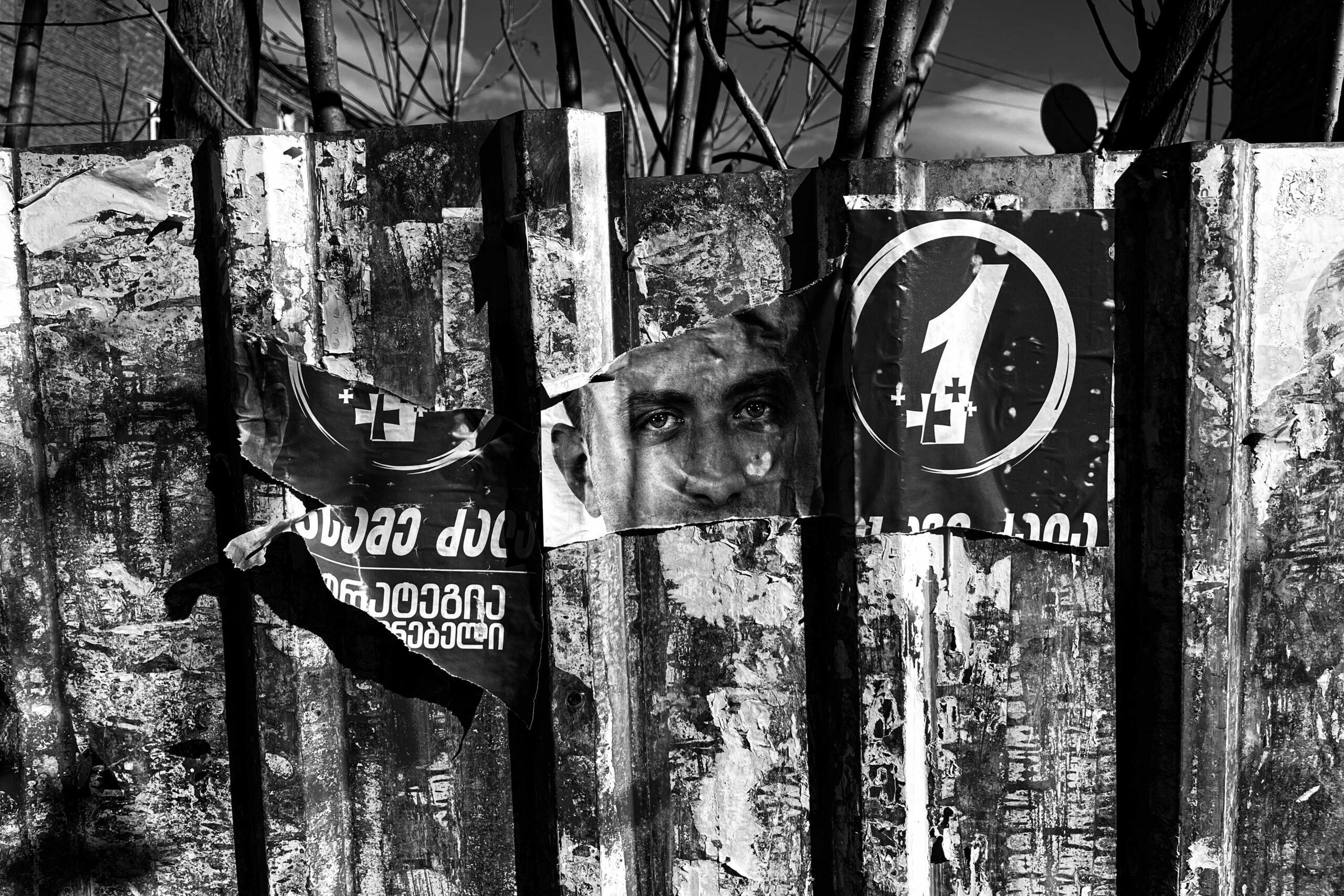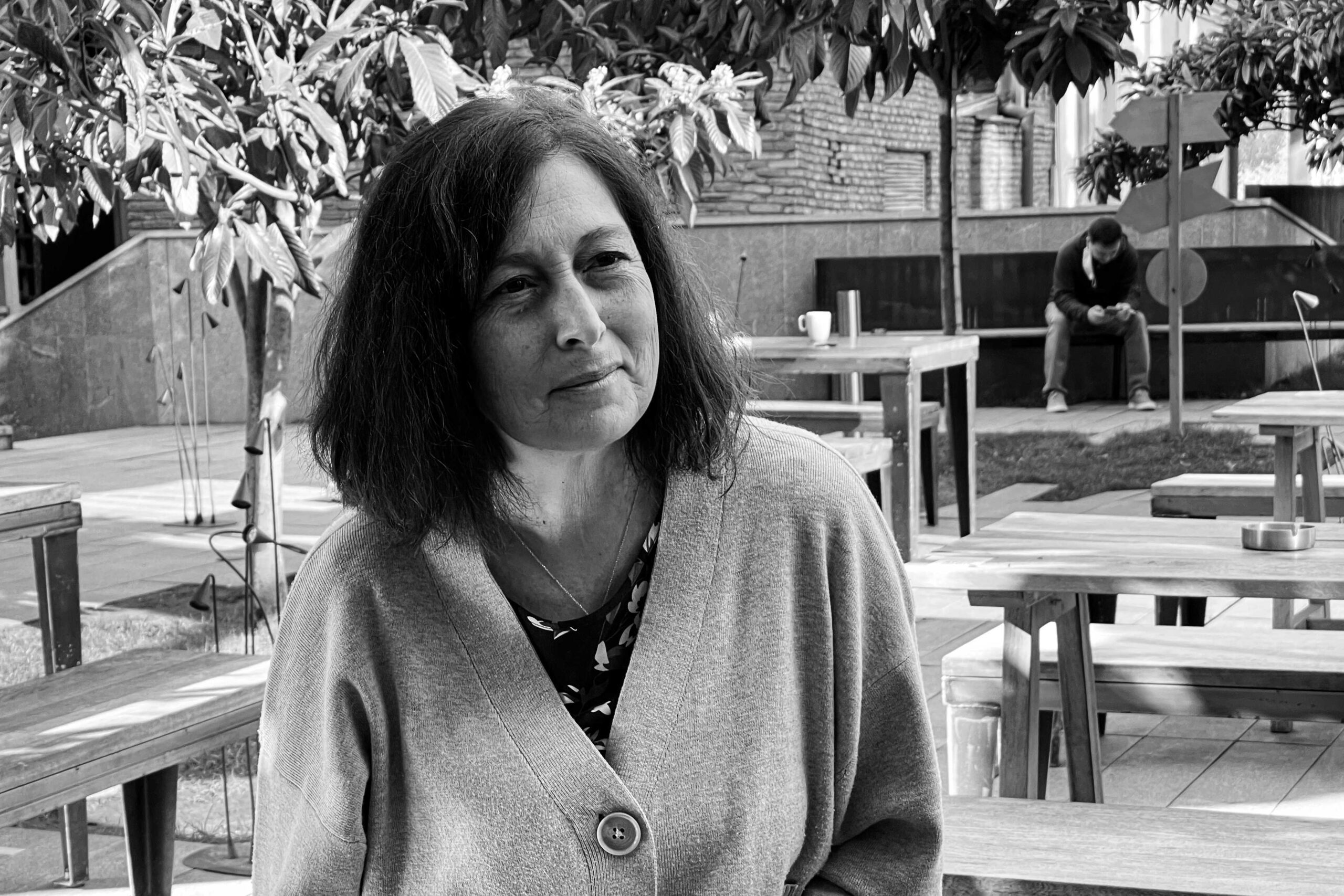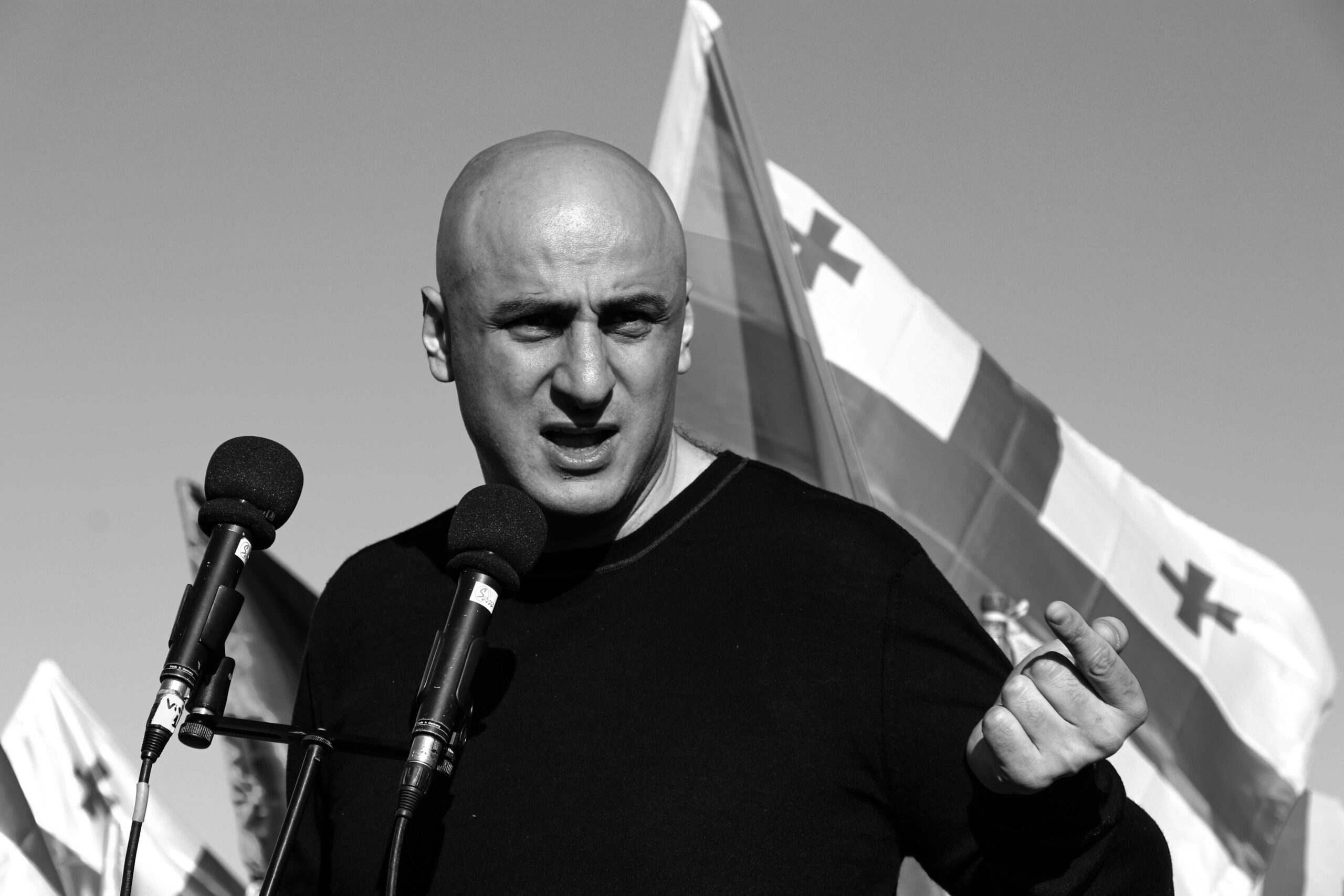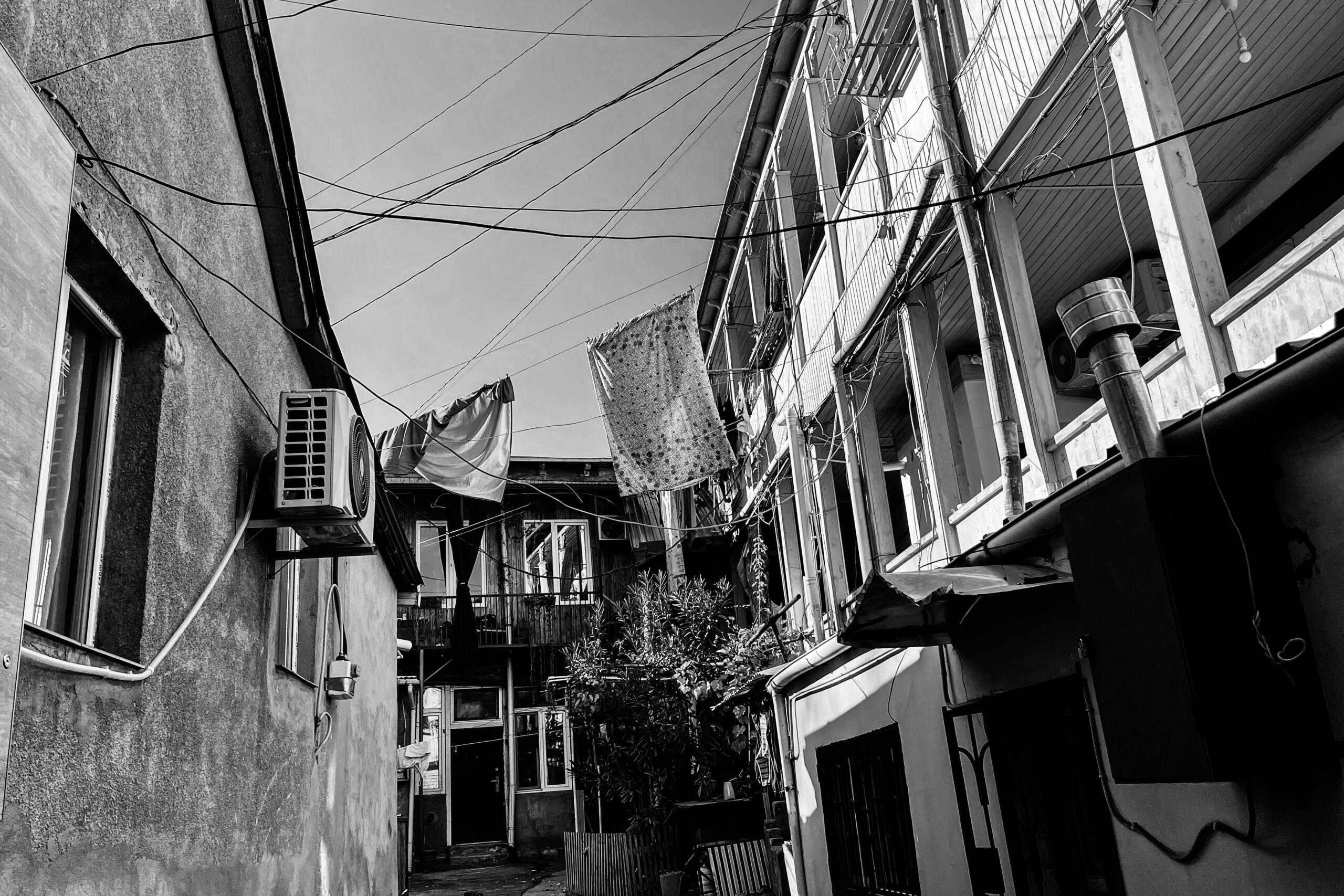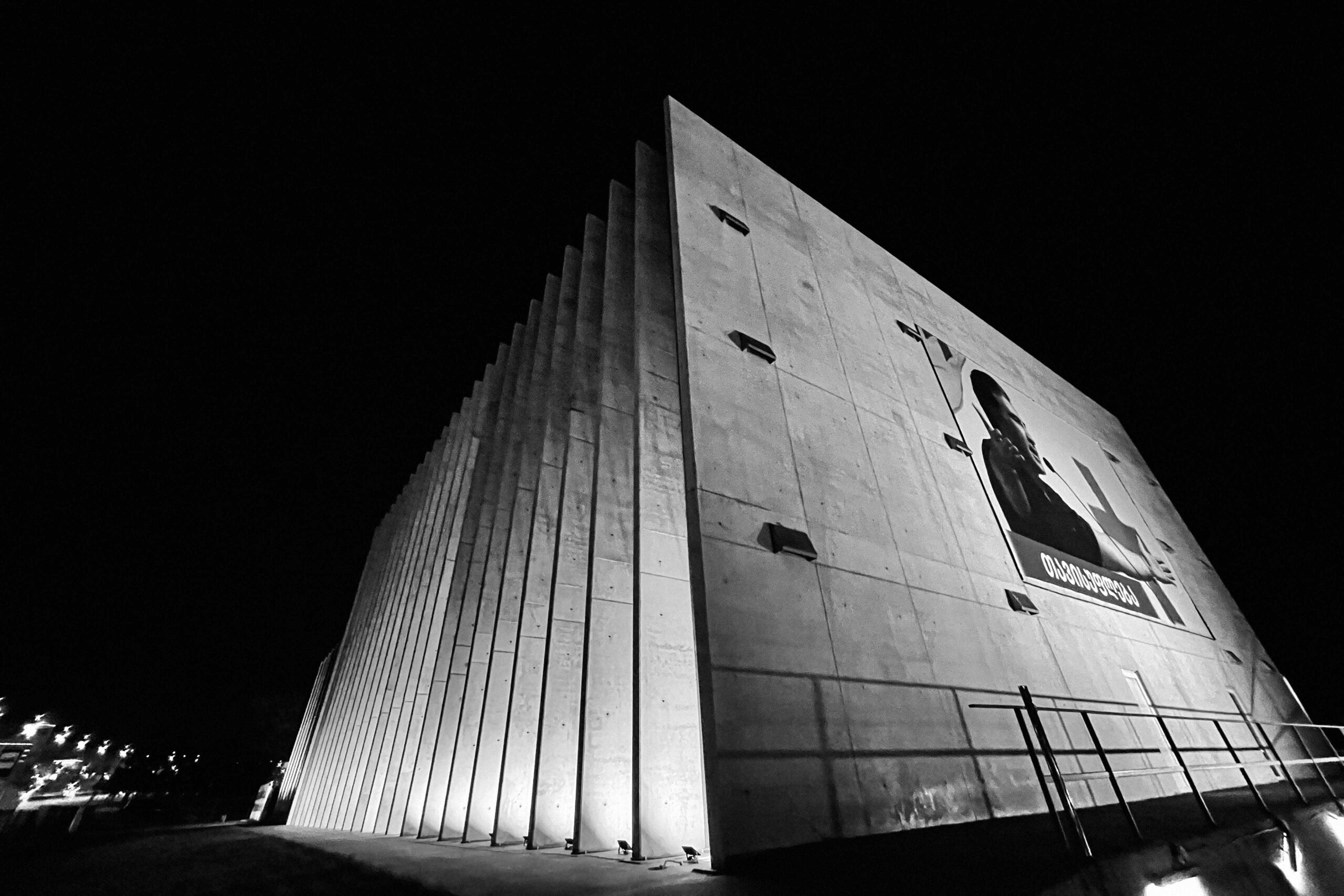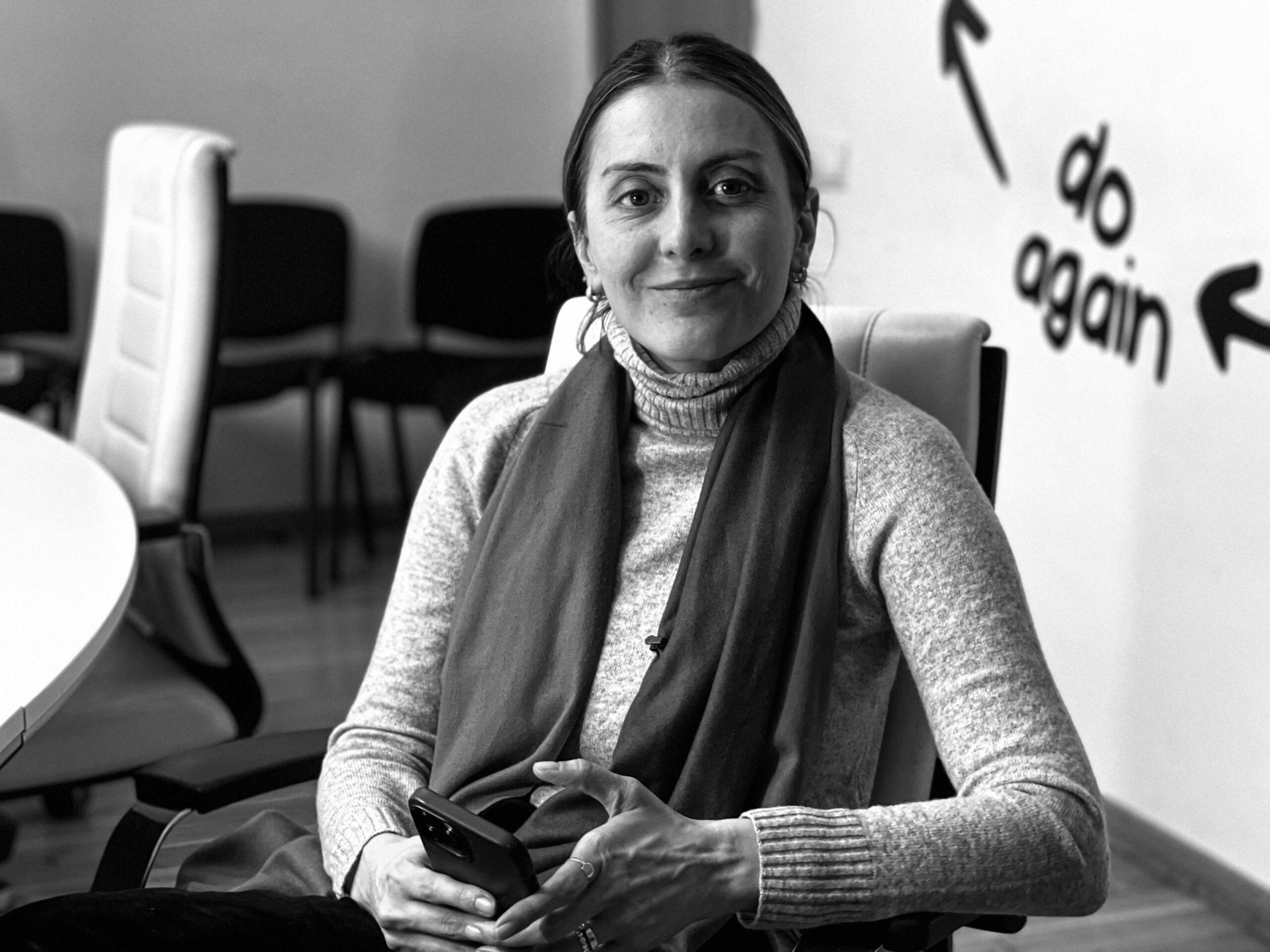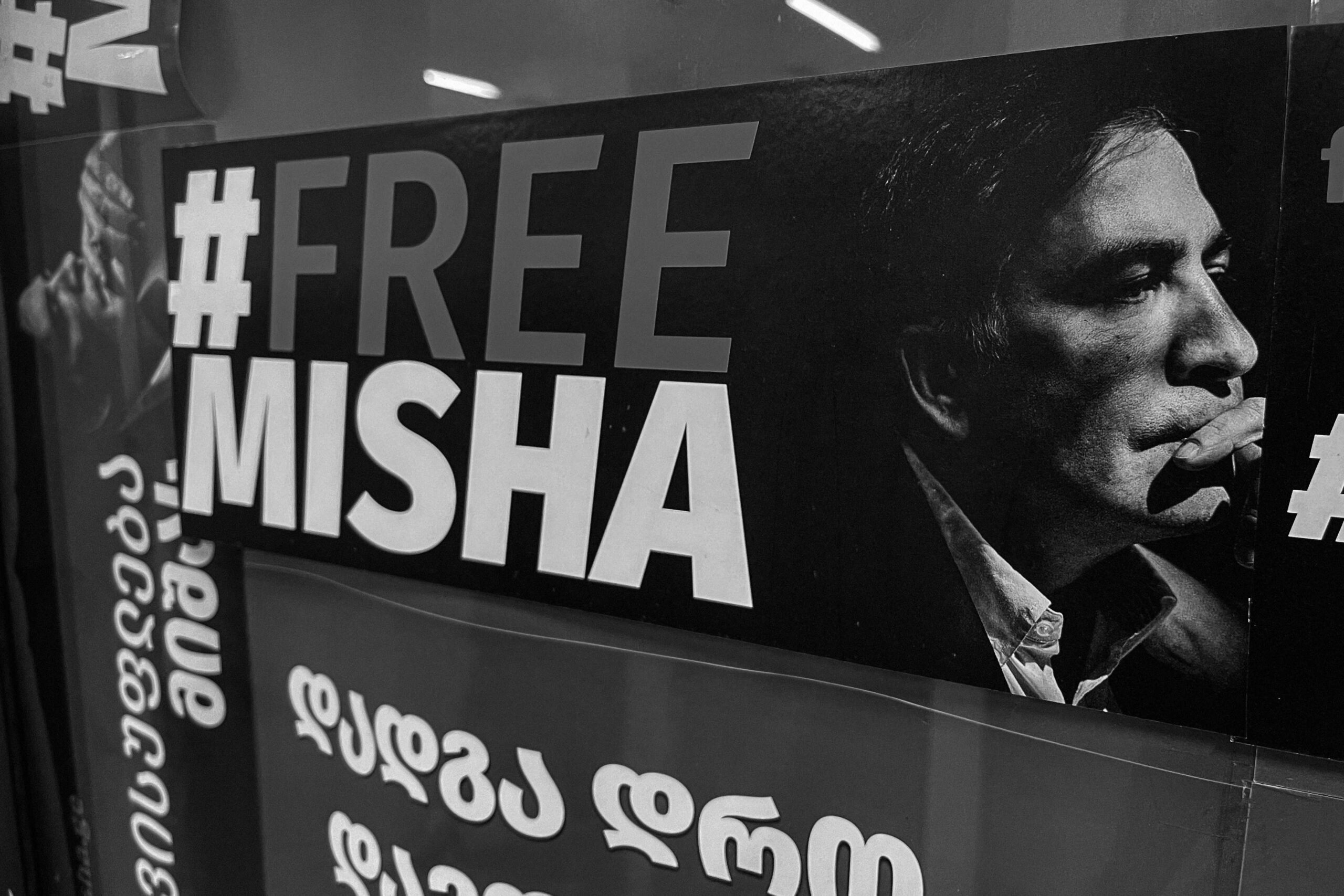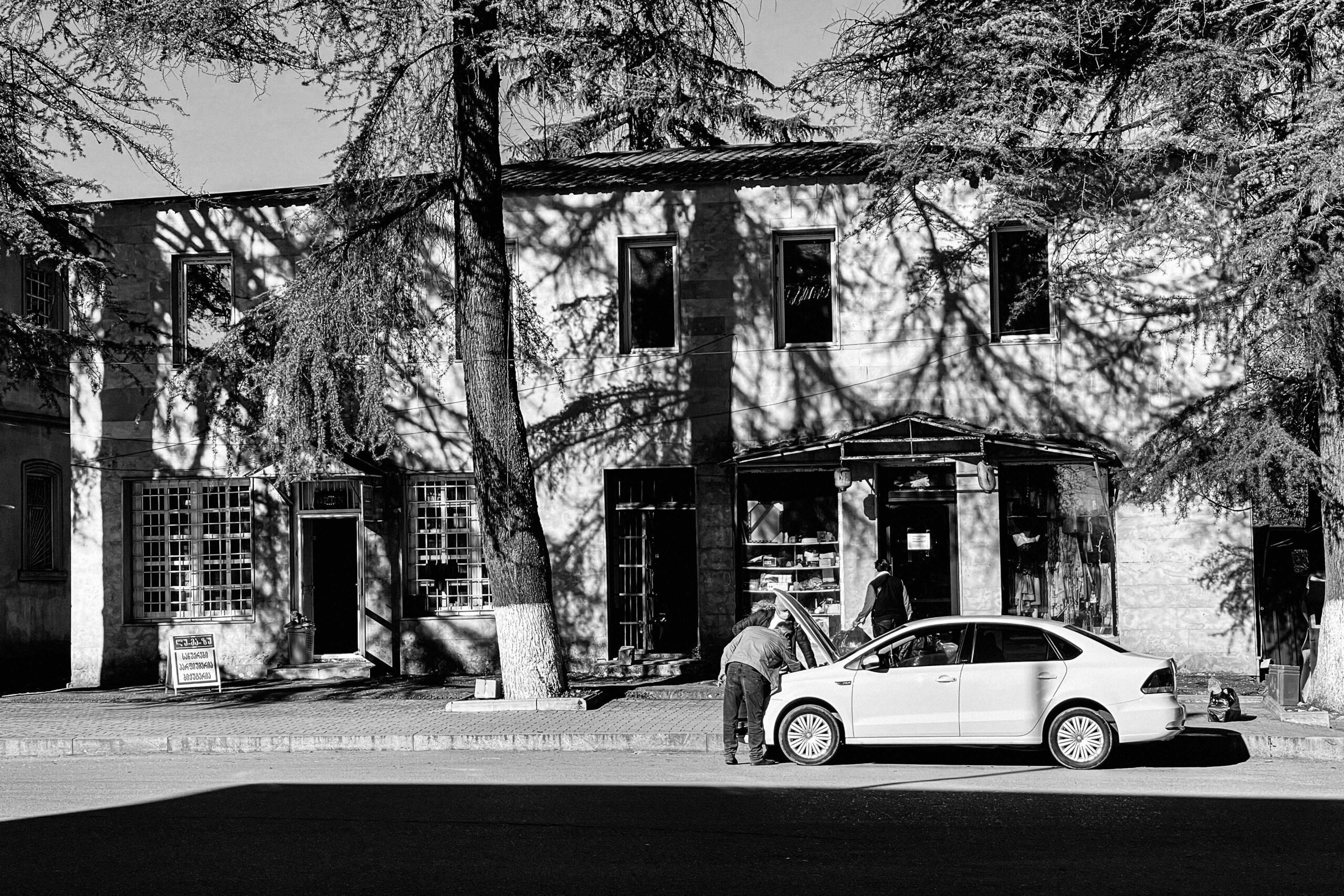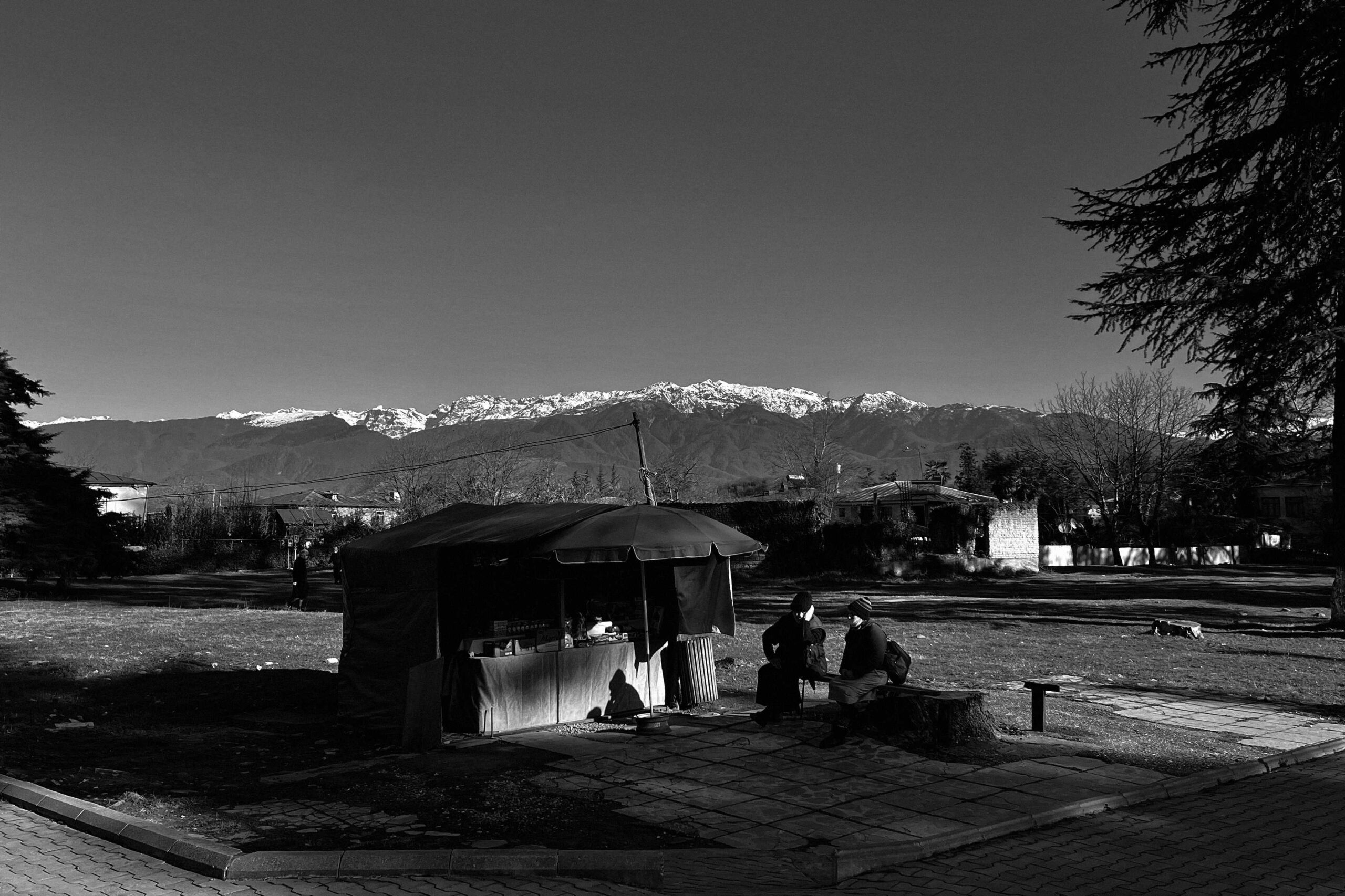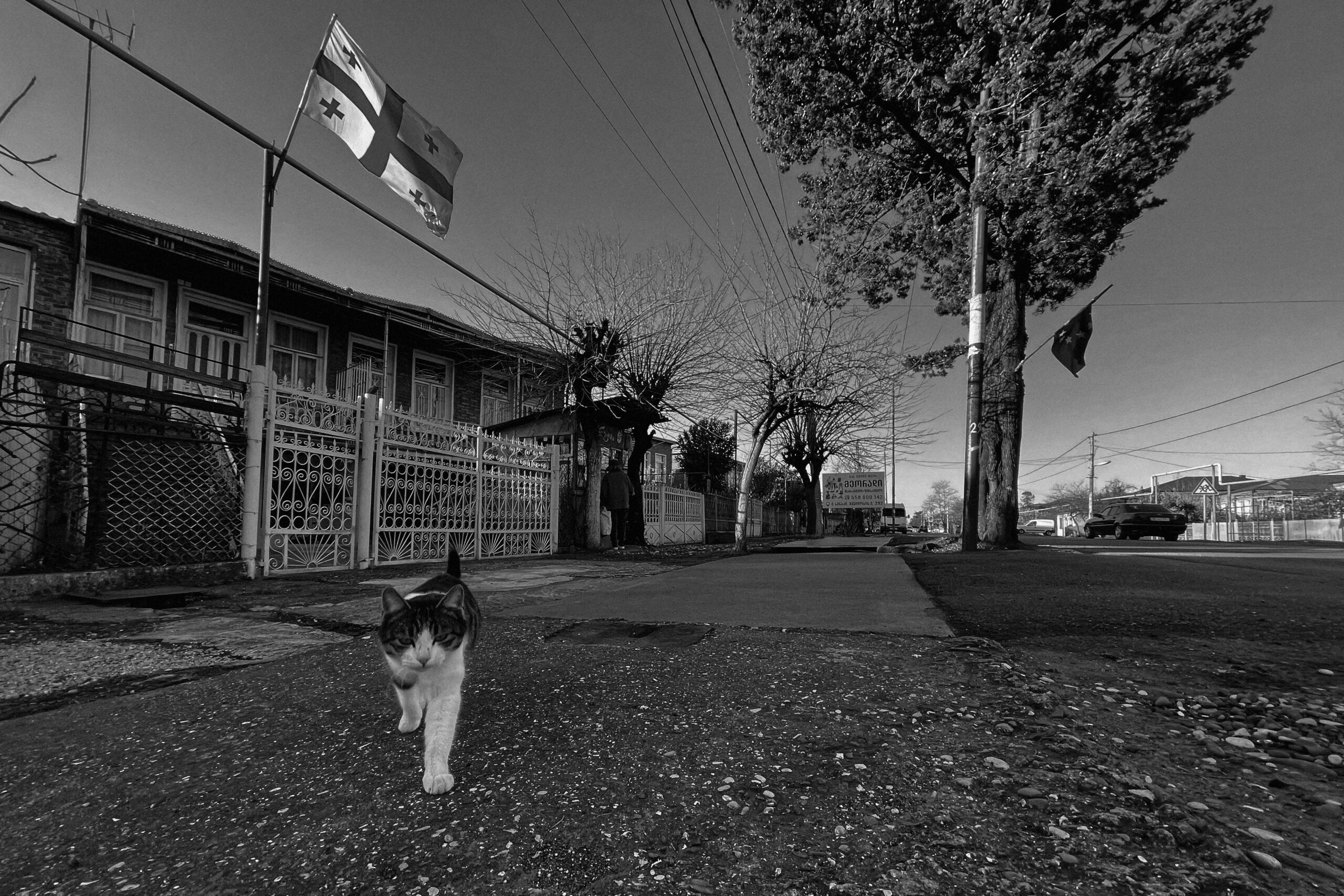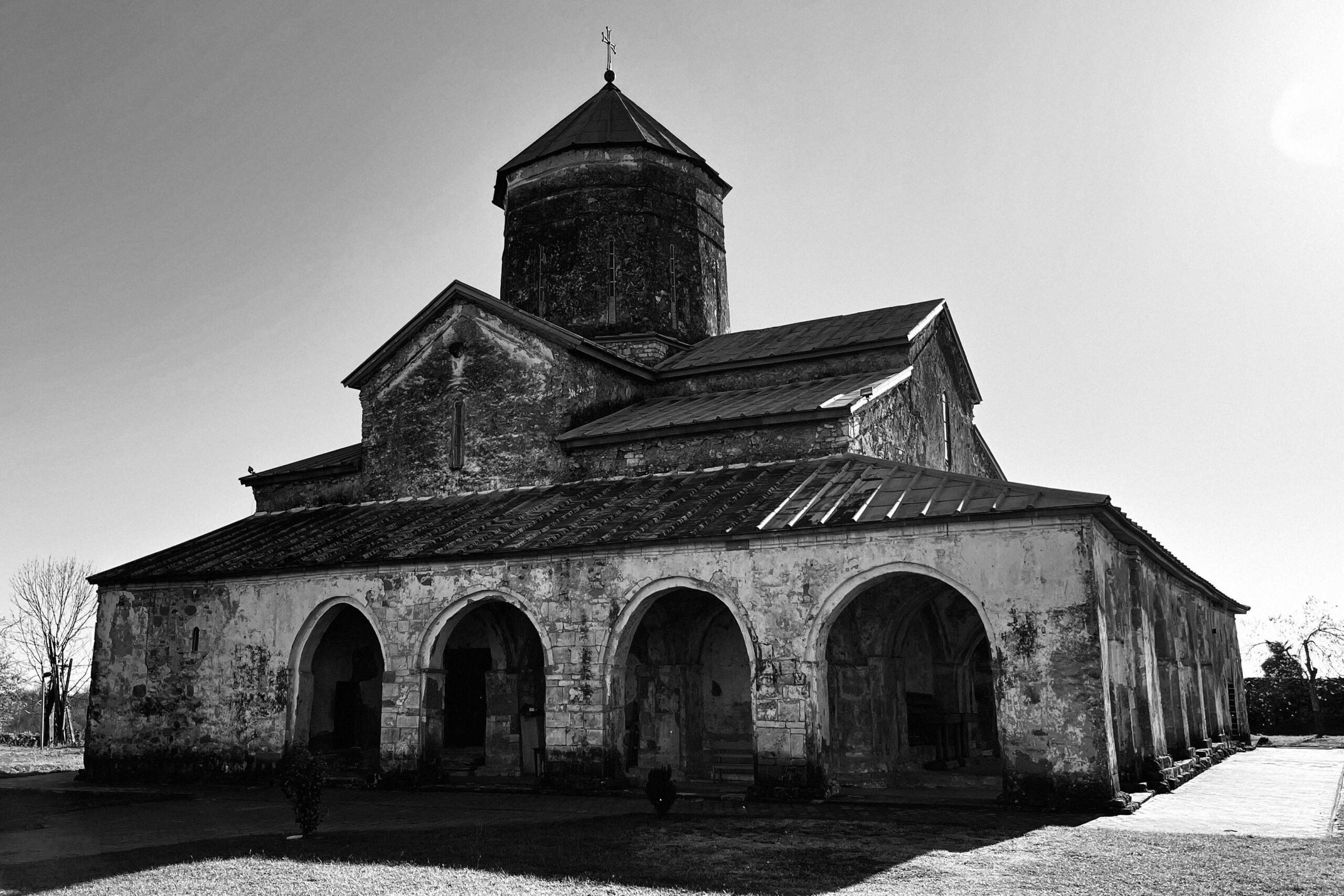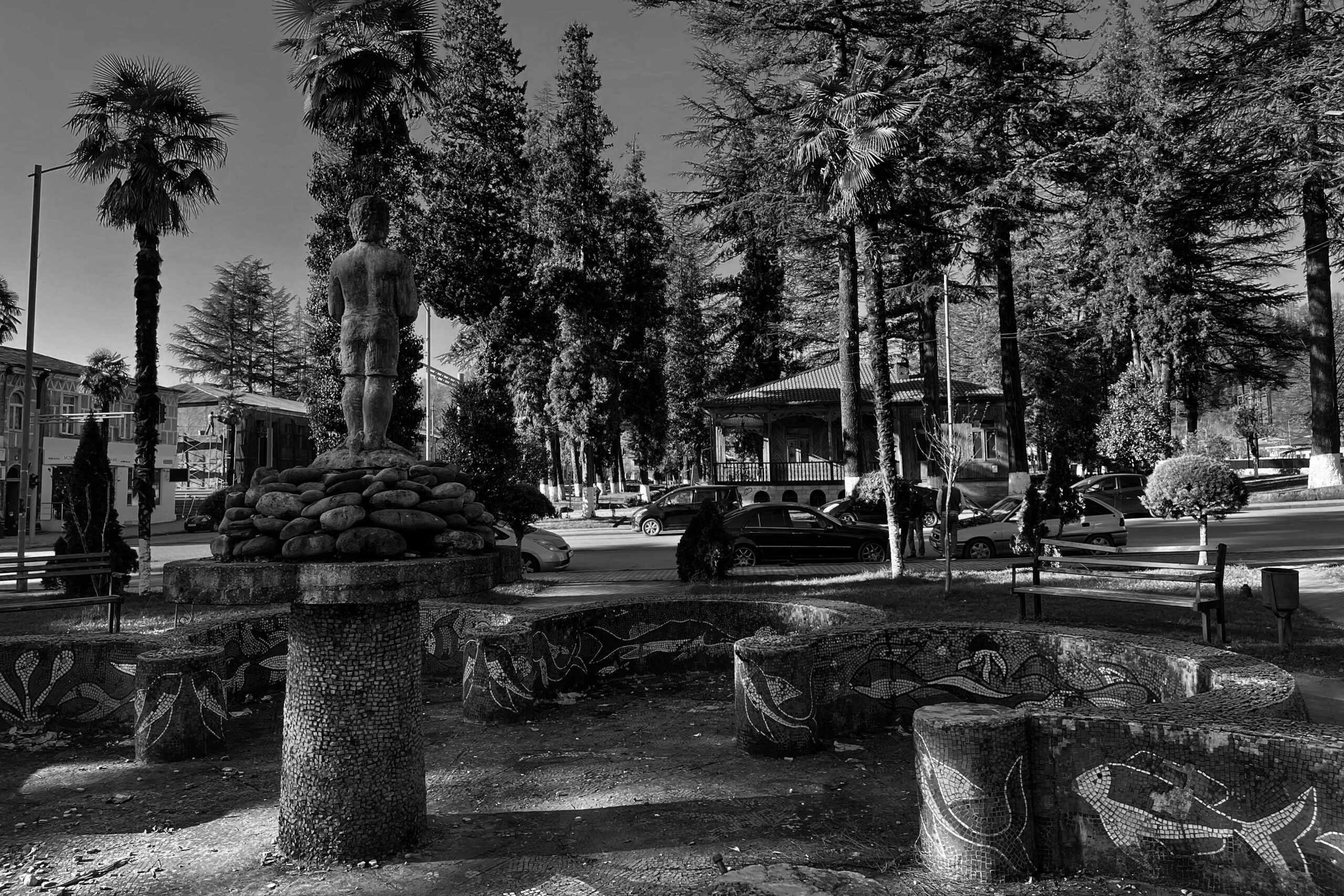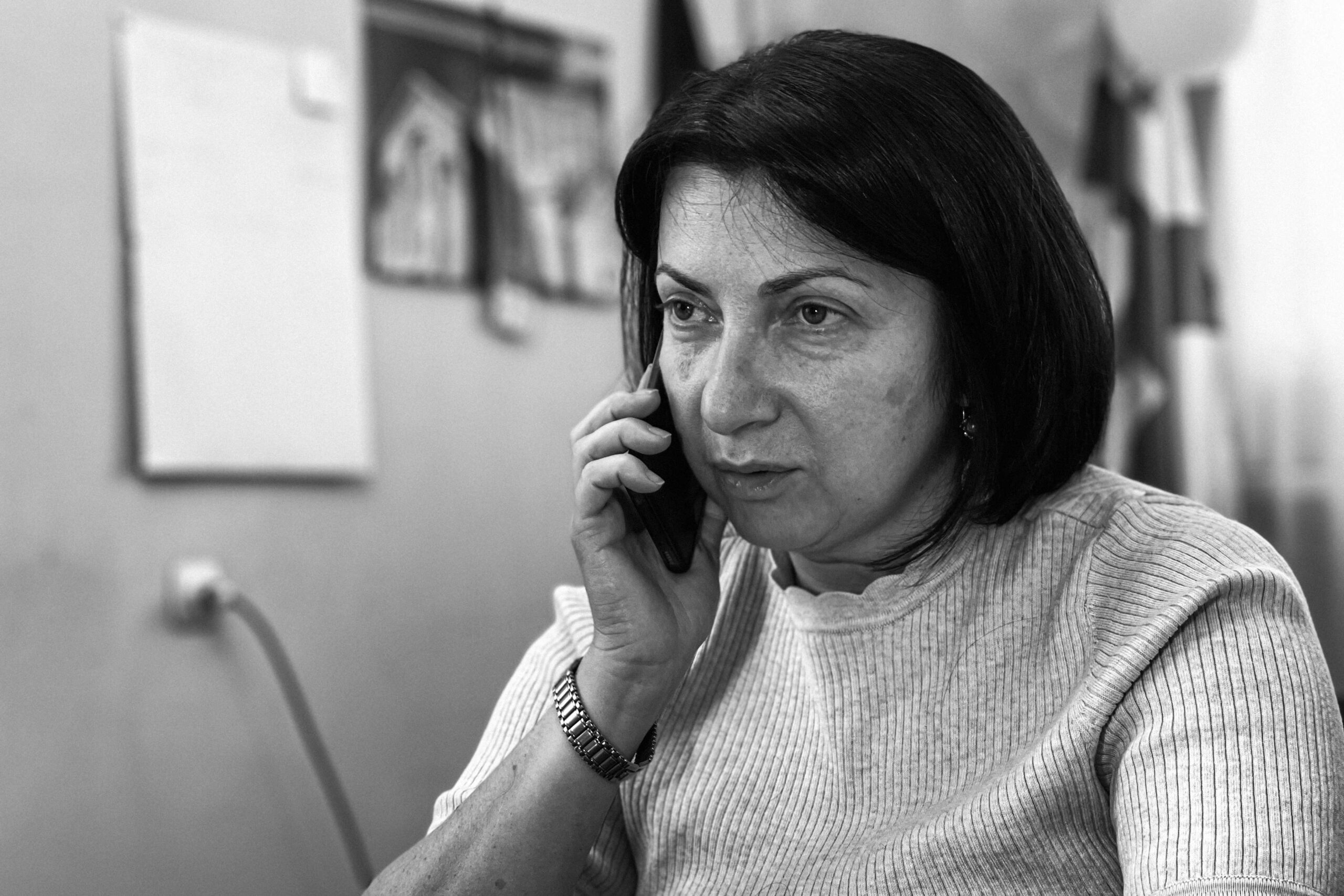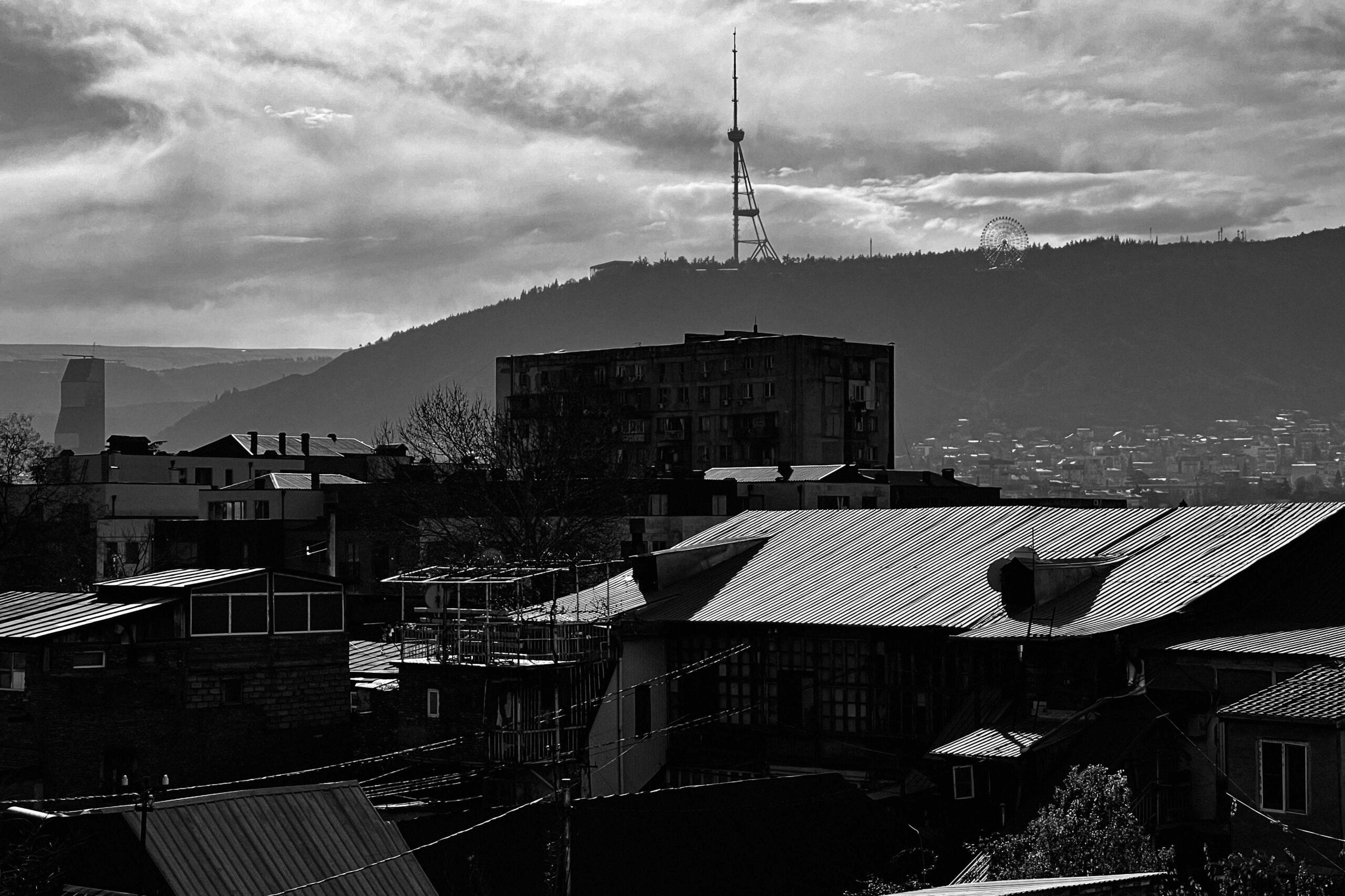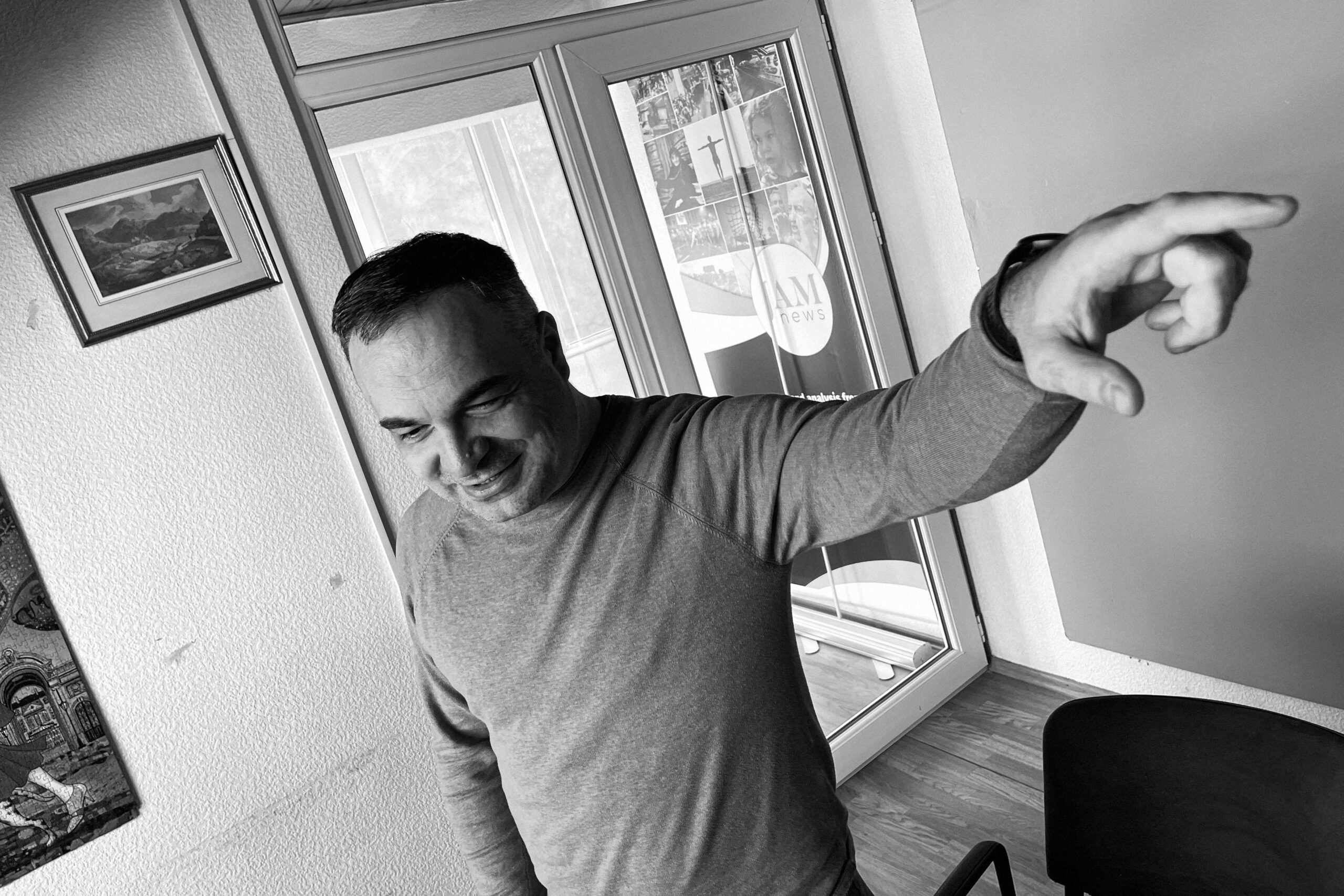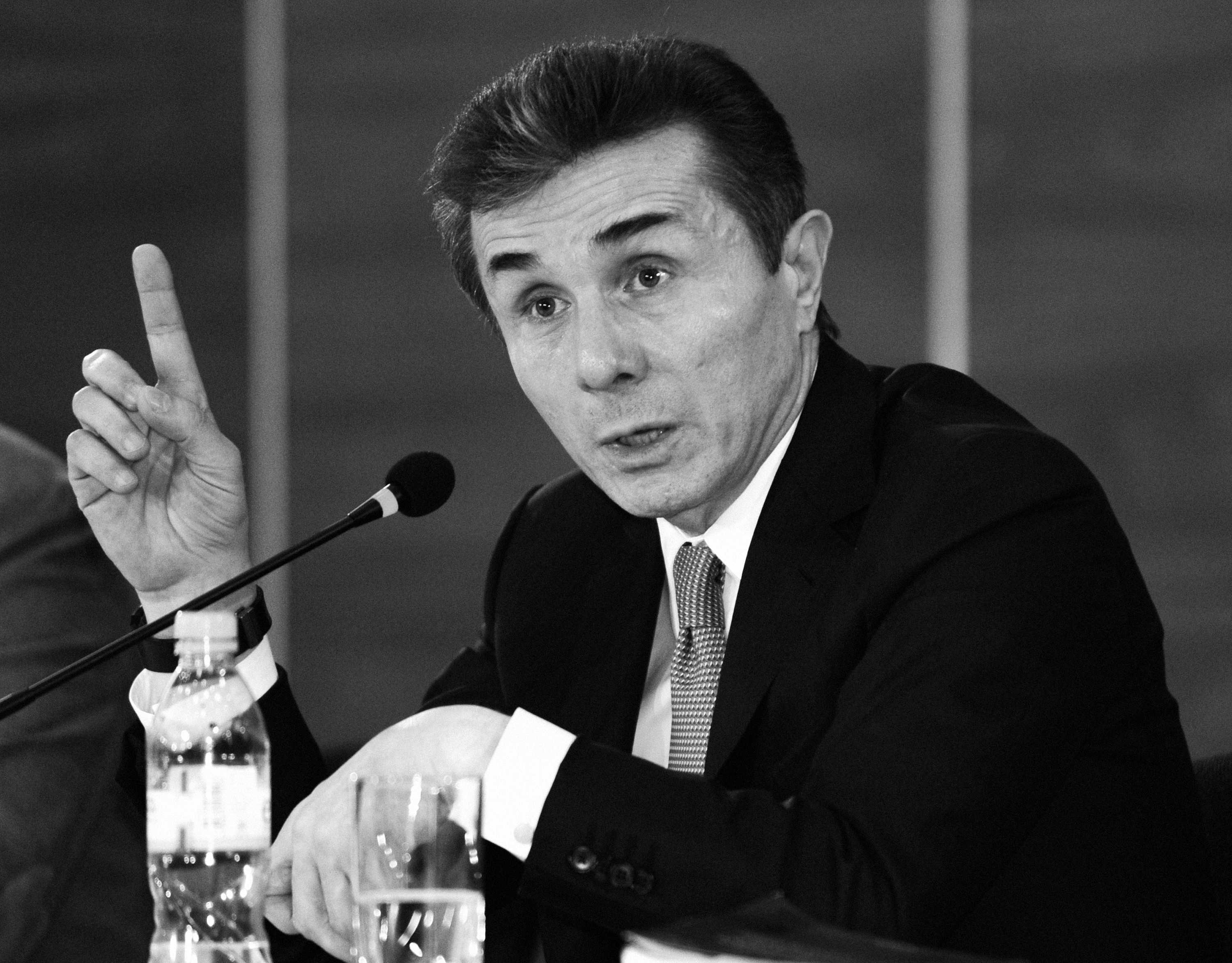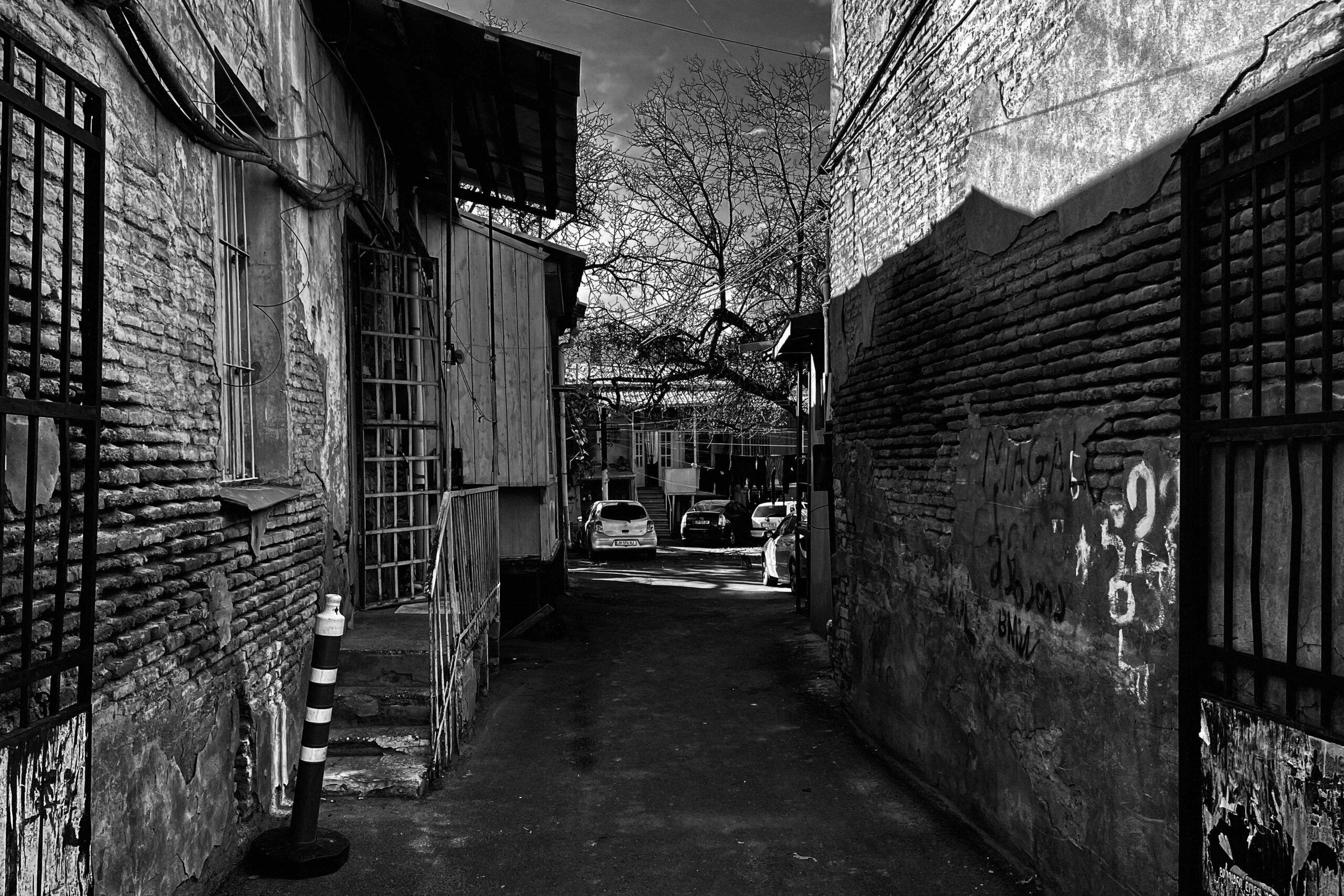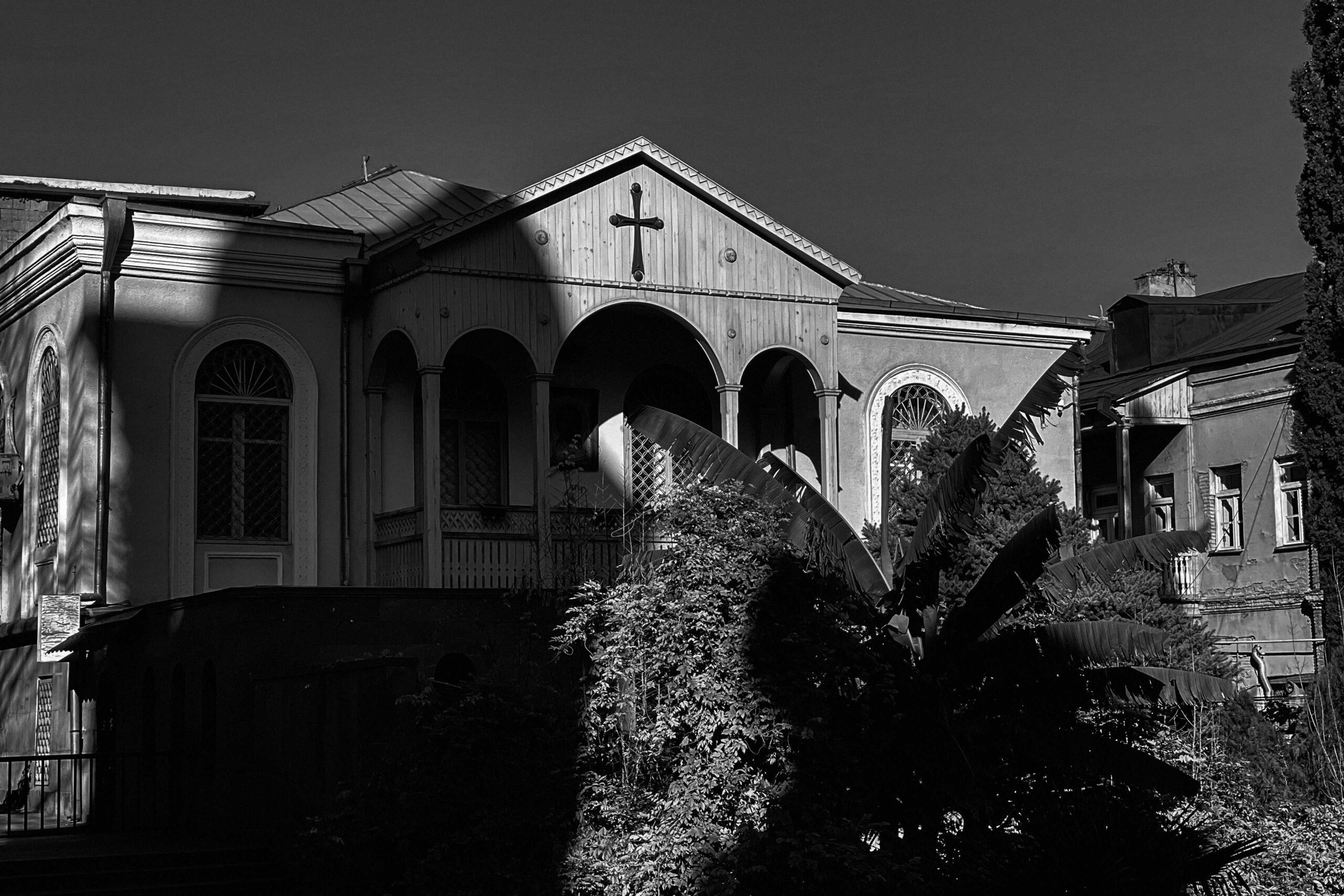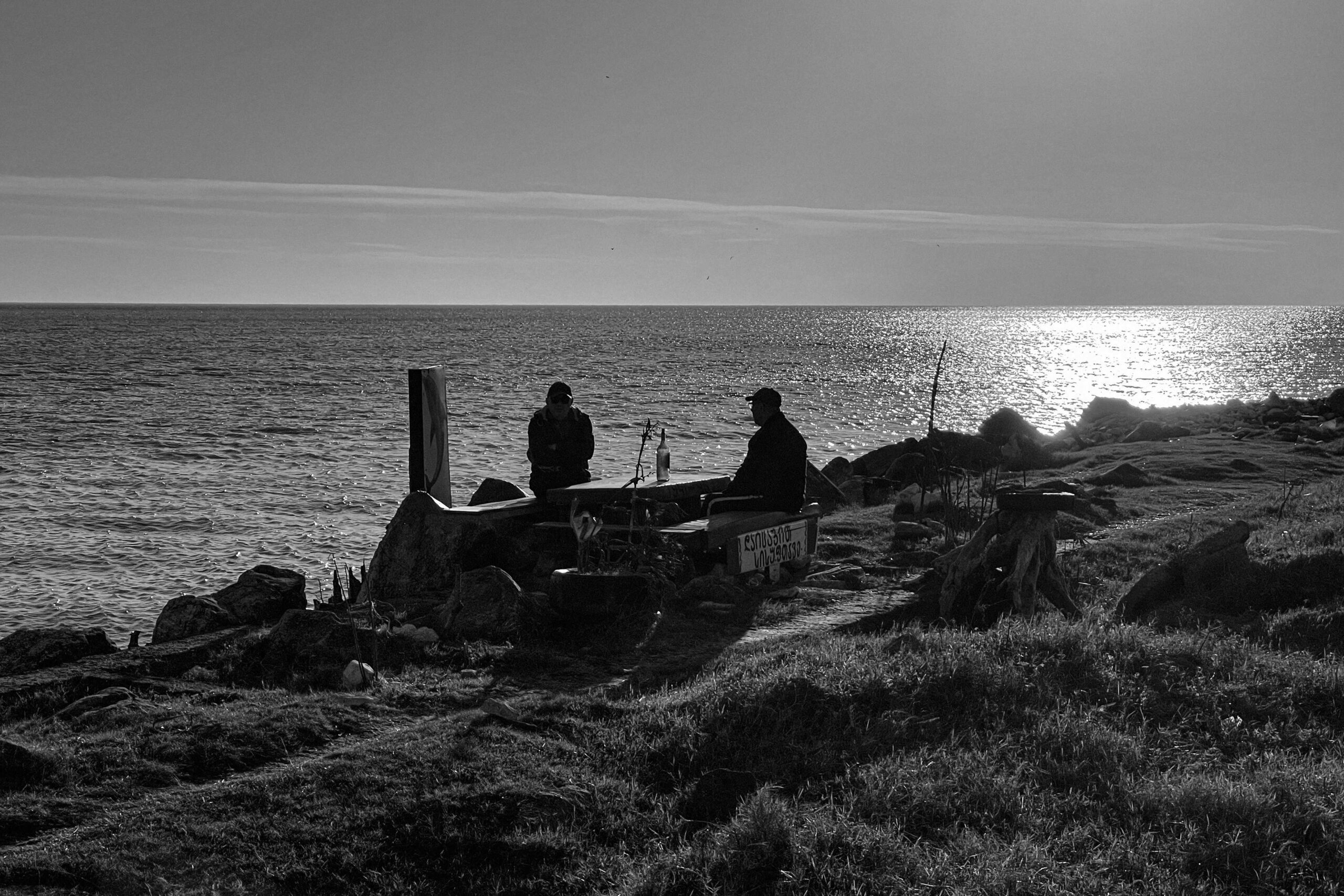Georgia is facing a serious political crisis. The country held local elections in October of this year, where the clear winner was the ruling “Georgian Dream” party. The opposition – mostly the “United National Movement” founded and led by Mikhail Saakashvili – took second place, though they had counted on winning, since that would give them the ability to call for new parliamentary elections as well. Saakashvili’s return to Georgia, and his subsequent arrest, hunger strike, and criminal convictions has only exacerbated the tensions in society. Now, Georgian’s haven’t simply divided into pro-and-anti Saakashvili camps, but to conservatives and liberals as well. A pro-Russian sentiment has begun growing in these circumstances. Zaborona’s deputy editor-in-chief, Juliana Skibitskaya, along with video operator Oleksandr Stashevskiy traveled to Georgia in order to understand how a country, which was once dead-set on joining the West, has come this close to dissolution.
July 5, 2021. In Tbilisi’s center, on Shota Rustaveli Avenue, a few dozen aggressive young men attacked journalists who were there to cover Tbilis’s pride march – an event representing and celebrating the country’s LGBTQ+ community. But the march never took place – its organizers admitted that it was simply unsafe for them to go outside. The prime minister, Irakli Garibashvili, directly called on potential marchers to avoid it. But the march’s opponents still showed up. They stormed the Tbilisi Pride offices, tore off and burned a rainbow flag, and later – tore off the European Union flag from the country’s parliament building.
“They chased us,” JAM news chief editor Margarita Akhvlediani tells Zaborona, who on that day was working at the cancelled pride march. “We removed our vests, which were emblazoned with the word “Press”, because if you were seen with that vest, then you were getting chased by people grabbing cobblestones to bash your head in. Journalists’ heads were assaulted with heavy cameras. [We] hid in stores – they were breaking down the doors and forcing their way in.”

A demonstration in support of 53 journalists who were brutally beaten up during Tbilisi Pride. Tbilisi, Georgia on July 07, 2021. (Photo by Davit Kachkachishvili/Anadolu Agency via Getty Images)
Law enforcement on the scene did nothing to hinder the aggressive attackers. Around fifty journalists suffered serious injury that day – and one of them was found dead in the days following. His relatives are sure that this was the result of the beating he had received that day.
“For me, July 5th was the day of no return,” adds Akhvlediani. “This was the day when it became clear that the situation in Georgia had exceeded all limits and it’s possible that there’s no going back.”
“Kotsi” and “Natsi”
The weather in Georgia at the start of December is warm and sunny – outside temperatures reached 20 degrees Celsius. But the once busy streets of Tbilisi are now almost empty, as are the many restaurants in the city center. Georgia continues to observe a strict COVID lockdown – many places only allow people in with a QR vaccination code, and masks are required to even just walk down the street. On the other hand, there are significantly more beggars on the street, compared to pre-pandemic times – mostly local middle-aged women.
Light poles, fences, and houses are still covered in political ads – most often, these are the blue sheets of the Georgian Dream party, or the white-red United National Movement which are without exception decorated with the image of Mikhail Saakashvili. Georgian elections were held in October, but the echoes linger to this day.

Photo: Alexander Stashevsky / Zaborona
“People have separated into ‘kotsi’ – supporters of Georgian Dream, and ‘natsi’ – supporters of Saakashvili’s party. [Kotsi is a portmanteau from the Georgian “kartuliy otsneba’, the Georgian name for the ruling party, while natsi is a shortened form of the United National Movement – ed.],” explains Akhvlediani. “And this is a very sharp division – to the level where a taxi driver may kick you out if your perspective [on the political events in Georgia] don’t match the driver’s view. You may even be asked who you are when meeting new people at a party – ‘kotsi’ or ‘natsi’? Families and friendships are being torn apart. Even domestic violence has increased.”

Margarita Akhvlediani. Photo: Alexander Stashevsky / Zaborona
Zaborona spoke to Margarita at a Tbilisi cafe not far from her residence. She’s always in a hurry – immediately after our talk, she rushes away to yet another conference. The JAM News project she heads has operated in Georgia for six years, though it’s not quite accurate to call it an exclusively Georgian publication – it covers events in Armenia and Azerbaijan as well. It, perhaps, is the only media in the South Caucasus region that tries to provide an impartial look at the region as a whole, as well as in the unrecognized “republics” – Abkhazia, South Ossetia, and Nagorno-Karabakh. That’s why JAM News journalists have always had a difficult road, and during a political crisis, this situation has only worsened.
Georgia’s crisis has been on-going for a few years now. In 2019, the country protested a Russian delegation’s visit to the Georgian parliament: at the time, a Russian MP, Sergei Gavrilov, sat in the chair reserved for the Chairperson of the Georgian Parliament, and conducted the entire visit in Russian. The protests were violently dispersed by law enforcement and the government called the protests an attempt at a “coup”. Government prosecutors charged United National Movement chairman Nika Melia with “organizing group violence.” He was arrested later, in 2020.

Nika Melia. Photo: Davit Kachkachishvili/Anadolu Agency via Getty Images
Georgia held parliamentary elections that same year. The ruling Georgian Dream party won with a huge margin, having received 48% of votes. Georgia Dream has been ruling the country for nine years, having been founded and headed by oligarch Bidzina Ivanishvili. The main opposition party, Saakashvili’s United National Movement, won 20% less votes than Georgian Dream. Despite the ruling party’s impressive results, Georgian Dream actually lost votes in single-mandate constituencies (elections were held with a mixed list and majoritarian system), while the opposition gained ground. Despite this, however, UNM still alled the results falsified, and began to boycott Parliament.
The European Union had to step in to resolve the situation. Charles Michel, a Belgian politician holding the title of EU president, offered up a plan of a way out of this political traffic jam, at the end of 2020. His plan called for the release of opposition leader Melia, and for judicial reform. Additionally, the government would be obligated to hold snap elections in 2022, though only if the Georgian Dream party wins less than 43% of votes during 2021’s local elections. The opposition, in turn, would end their parliamentary boycott.

Photo: Alexander Stashevsky / Zaborona
“The agreement was signed only after very difficult fights,” says Akhvlediani. “And here, recently [summer of 2021], the government says: ‘Well, we’ve changed our mind and are leaving the agreement.’ So as a result, the bar to enter parliament will not be lowered during the next elections [from 5% to 2%], and political amnesty has been played back. And of course, this was a serious request for the West – Michel personally oversaw this issue and his reputation hinged on it. They [the ruling party] have allowed themselves to speak rather brusquely with Western intermediaries.”
The Saakashvili factor
The office of the Georgian Dream party is located across from the pedestrian, glass-built Bridge of Peace, built during Saakashvili’s presidency. All cellular connections fail entirely in a 200 meter radius around the party headquarters. Georgian Dream’s PR service did not respond to Zaborona’s inquiries about comments from the party chairman, or Parliament.
The office of the United National Movement is located almost at the outskirts of Tbilisi, on the way to the airport. The doors here are open at any time of day, and a few dozen people are constantly inside – watching the news and keeping order. The atmosphere is a bit reminiscent of the Kyiv mayor’s office during the Euromaidan. This the place where Saakashvili was detained when he returned to Georgia – in fact, on the eve of the first round of local elections.

Office of the United National Movement. Photo: Alexander Stashevsky / Zaborona
“The last time we saw him [Saakashvili] in Kyiv, we spoke at length,” Khatia Dekanoidze, one of the leaders of UNM, tells Zaborona. (You can read more about that in an interview we held with Khatia.) “He constantly insisted that he wants to return to Georgia, in order to help get rid of Ivanishvili.”
During Saakashvili’s administration, Dekanoidze led the reform of Georgia’s Ministry of Internal Affairs, and moved to Ukraine in 2014. She had an ambitious task at the time – turn Ukraine’s militsiya, a Soviet-era affection for law enforcement, into a modern, Westernized police force. In 2015, she headed Ukraine’s National Police, and personally contributed to the creation of the Patrol Police division. At the time, that division had the highest trust rating for law enforcement in Ukraine’s entire independent history.

Khatia Dekanoidze. Photo: Aleksander Stashevsky / Zaborona
But, in 2016, Khatia quit – justifying this by claiming that the entire structure of Ukrainian government, starting from MPs and ending with then-president Petro Poroshenko, stood in the way of reforms.
“For reforms like this, you need to have a steely political will,” she explains, nodding her head repeatedly. “And they lacked this will.”
After working for some time in Moldova as a consultant to the criminal police there, Khatia returned to Georgia in 2017, so she understands why Saakashvili returned as well.
“When I first saw him in custody, I asked: ‘You do understand that this is a huge risk?’” she recalls. “And he replied: ‘Yes, I’ve been free, I worked, I had everything, but it wasn’t the freedom that was dearest to me – that’s my homeland, Georgia.’ And, to be honest, I understand him.”

Election poster of the United National Movement party in Tbilisi. Photo: Alexander Stashevsky / Zaborona
Saakashvili declared a hunger strike immediately following his arrest. He was tricked into transferring to a prison hospital – and later, on YouTube, videos appeared of Saakashvili being forcefully dragged along the floor. Opposition parties unanimously demanded the former president’s release, and people took to the streets of Tbilisi in protest.
It seemed like Saakashvili’s return would help the opposition gain more votes. Additionally, the first round of elections held on October 2 were likely more positive for the opposition than otherwise – candidates in mayoral races across the country failed to receive more than 50% of votes, triggering a second round. Khatia Dekanoidze’s results in Kutaisi, where she ran for office, beat out the Georgian Dream candidate by 2%.
But Margarita Akhvlediani is certain that Saakashvili’s character is too toxic for Georgia. There is no single opinion on the former president – he’s either deeply loved, or deeply hated – something even his supporters admit to.
“Saakashvili dramatically changed Georgia. He made the country completely different,” the journalist explains. “He didn’t just change the roads, fight corruption, and resolve electricity issues. He, in a big way, changed people’s mindsets. But at the same time, he set a lot of people against him. For the victory over criminals, we paid for with the fact that Georgia now takes second place in Europe for the quantity of prisoners. People can spend six years in prison for simply carrying a pot out of a factory. This is a very high price. I’m not ready to discuss, now, whether this price was worth paying, but there’s a lot of people that believe that it wasn’t worth it.”
Akhvlediani has worked at protests and says that a lot of people are aggrieved that others brought in placards in support of Saakashvili. According to her, the antipathy towards the former president is so high that many decided not to vote for the opposition because of their position of “Better Georgian Dream, then Misha [a nickname for Saakashvili – ed.] again.”
“I think that there may be such people,” admits Khatia Dekanoidze. “But at the same time, I think that Saakashvili [with his return] proved that he is really ready to die for Georgia.”
Akhvlediani believes that Saakashvili’s return had a more prosaic reason – the former president was very insulted that he was no longer an important person in his own homeland. “He was the president of a country, a reformer, a person that the entire world talked about. For a person like that, they can’t simply remain a regional politician [as he was in Ukraine.]”
Oppositional Tsalenjikha
The opposition lost the local elections, but the ruling party also failed to receive an overwhelming victory – it won just a few percentage points of votes more. The only municipality, out of twenty, that the opposition did win was the city of Tsalenjikha in north-west Georgia, nearly on the border with the unrecognized “republic” of Abkhazia.
“At the moment everyone is rushing into Tsalenjikha, both the government and the opposition,” insists Akhvlediani. “The government needs to regain control over the city, while the opposition needs to demonstrate why it’s better to vote for them. I’m certain that Tsalenjikha is about to see an absolute windfall of funds.”

A building in Tsalenjikha destroyed during the 1992 war. Photo: Alexander Stashevski / Zaborona
It’s a nearly six hour drive from Tbilisi to Tsalenjikha. The road first goes onto the highway, built during Saakashvili’s administration, then later it turns onto a country road, in places shattered and full of potholes. Cows and pigs wander freely, while Georgians sell persimmons, pumpkins, and mandarins on the side of the road – everything from their own gardens. The population in this part of Georgia, as a rule, lives entirely off agricultural production and trade. Zugdidi, the only big city close to Tsalenjikha, used to have a number of factories and plants: machine-building plants, celluloid-paper factories, oil mills and conserved food plants. But in the 90s, these were all plundered and closed.

Tsalenjikha. Photo: Alexander Stashevski / Zaborona
“Gamarjobat!” Women at a local cafe Tsalenjikha exclaim the traditional Georgian welcome at a local cafe in Tsalenjikha, and smile widely when they hear that we’re from Ukraine. Pkhali and Satsivi, the Georgian dishes we are served with, have nothing in common with the ones served in Tbilisi restaurants – they’re rougher both in presentation and in taste. This is the only open cafe in the center of town. The only thing nearby is a small bar.
Several houses near the local mayor’s office have been burned, others bear traces of fires and bullets.These are the echoes of Georgia’s 1992 civil war, when supporters of Georgia’s first president, Eduard Shevardnadze, came into town and burnt down a few of its buildings.

Tsalenjikha. Photo: Alexander Stashevski / Zaborona
“I have the same question – why has no one restored these houses in thirty years?” chafes Tamara Belkania, the vice-mayor of Tsalenjikha. “Probably because the government didn’t need this, probably, the government was busy with something else – for example, their own enrichment.”
Tsalenjikha’s new mayor, Giorgi Kharchilava, is a representative of Saakashvili’s party, while Belkania is from a different opposition party – Lelo. Tsalenjikha has become an example of the compromise different opposition parties have come to – a joint coalition government. That’s why the representatives of different parties have received government posts. Tamara herself was born in Tsalenjikha, but lived for a long time in Tbilisi. She returned to her hometown just this year – right on time for elections. Living in the capital has left its mark – Tamara speaks with well-chosen phrases and political slogans. Her subordinates are more open – when we talk in the corridors, they admit: they did not expect to win this election
“I have a few reasons for why we won,” Belkania explains. “First of all, people are tired of what’s going on, that the government is corrupt, that it’s cashing in while people grow poorer. Secondly, the mayor is well-known in the town. He’s a decent person, a family man, he plays sports. And thirdly, he’s traveled the length of the town, he’s personally spoken to people and convinced them. People can see that he’s close to them, that he’s the same kind of person.”

Tamara Belkania. Photo: Alexander Stashevsky / Zaborona
Kharchilava won by a small margin – he beat his Georgian Dream opponent just by a few percent. In November, Kharchilava refused a meeting with Georgian prime minister Garibashvili when the latter held a conference with all of Georgia’s mayors. Instead, Kharchilava said that he’s ready to cooperate with the ruling party “in the interests of the municipality.” Belkania promises that Tsalenjikha will be unrecognizable in a few years.

Tsalenjikha. Photo: Alexander Stashevski / Zaborona
Pro-Russian atmosphere and violence
Tamara Belkania wasn’t wrong when she noted Giorgi Kharchilava’s reputed “decency” and “family values” as traits that led to an electoral victory. Georgia is a very patriarchal, religious, and traditional country. Family loyalty and tradition is highly respected here, and priests in the villages are still the most influential and respected people there. A pro-Russian movement is growing on the background of this strong conservative mindset.
“From the very start of [Georgia’s] independence, there have always been people who have tried to enter politics and promote Russian interests,” Dmitriy Avaliani, an editor at JAM News, explains to Zaborona. “There was, for example, former [Soviet] KGB leader, [Igor] Giorgadze, who fled Georgia, or the former head of the [Autonomous Republic of] Adjara, [Aslan] Abashidze, who was very friendly with the Kremlin. At the moment, the Kremlin is betting on conservative power. They’re declaring their close relationship to the church, to tradition, and have a sharply anti-Western mood. They say that Georgia’s biggest enemy is the West, and it needs to be fought. From here comes point two: in the fight against the West, only Russian can help us. It’s a co-religious Christian country that defends traditional values.”

Dmitry Avaliani in the JAMnews editorial office. Photo: Alexander Stashevsky / Zaborona
“For a long time, even before Saakashvili and after, starting from 2010, there have been major investments into Georgia’s media space,” adds Margarita Akhvlediani. “This is a soft power which actively conquers local media and creates its own. They work in the Georgian language and praise the Georgian people in every way – [calling them] exceptional and unique, which greatly spoils Western influence.”
One of the most striking examples of this sort of pro-Russian platform is the telecom and internet platform company Alt-Info, which has created its own political party – the Conservative Movement. It’s already been registered at Georgia’s Ministry of Justice. The chairman of the party, Zurab Maharadze, refused to speak to Zaborona – he didn’t like our article about sexual misconduct and Russian influence in the Georgian church. The church, for conservatives, is their closest ally and helps them out a lot, says Avaliani.
Alt-Info doesn’t hide its pro-Russian leanings. In fact, they’re tied to some of the most radical representatives of Russian nationalism – for example, with the far-right ideologue Alexander Dugin. Alt-Info published an interview with Dugin, and one of the sponsors of the project as a whole, conservative businessman Levan Vasadze, met with Dugin in Moscow.
Government vs journalists
Alt-Info is, in particular, was the driving ideologist and moving power behind the attacks on Georgian journalists during the aborted Tbilisi Pride March. This media, on air, directly called on people to raid and beat march participants.
“This [Conservative Movement party] is a phenomenon of a slightly different type than its predecessors,” explains Dmitriy Avaliani. “On July 5, they managed to carry out a pogrom: they brought people in an organized manner, separated them into groups which had commanders who communicated by radio. They knew where to go, who to beat, and who to smash. These are the people who are broadcasting every day from their channel. They say that ‘liberals’ can be killed, that it’s not a sin. [That] our traditions and interests need to be defended by force. Not a single pro-Russian party in Georgia had done something like this before.”
In fact, Avaliani believes that the ruling Georgian Dream party directly patronizes such movements. According to him, not a single organizer of the attack was among any of the people detained after July 5 – only those who directly participated in the violence. Alt-Info has already promised to help those people out financially.
“The government currently has a problem with legitimacy and public support, which is why they consider the conservative and anti-Western electorate to be theirs,” Avialiani explains. “Georgian Dream has no concrete worldview except to fulfill the desires of oligarch Ivanishvili. What Ivanishvili says is what goes in domestic, as well as foreign, politics. Ivanishvili is panicked by Putin. This manifested itself very clearly after a speech given by journalist [Georgy] Gabunia at Rustavi-2, who cursed at Putin. Immediately after that, the government fell into a panic, and the Ministry of Internal Affairs released a statement at midnight. Someone, probably Ivanishvili, was afraid that Putin may think of him.”

Bidzina Ivanishvili. Photo: VANO SHLAMOV/AFP via Getty Images
Both Avaliani and Akhvlediani say that the government does not protect journalists. More than that, it’s gone to war with them. Instead of fighting pro-Russian influence, says Avaliani, security forces are busy with surveilling oppositionists and journalists. Independent media frustrates Georgian Dream. And in the end, that has led to society viewing journalists with suspicion.
For Ukraine, this is a familiar situation – and it repeats from president to president. The murder of journalist Pavlo Sheremet in central Kyiv has yet to solved, despite promises made by both former Ukrainian president Petro Poroshenko and current president Volodymyr Zelensky. Ukrainian authorities also hide from journalists – there wasn’t even open accreditation at Zelensky’s last press conference marathon. If one compares Ukraine to Georgia – these are all alarm bells.
“For me, a big shock was the people’s reaction [to the beating of journalists during Tbilisi Pride],” admits Margarita Akhvlediani. “It’s accepted in Georgia that if you start to feel bad or if you’re attacked, regardless of whether you’re a man or a woman, you’ll always find help. A girl with a microphone gets her knees beaten in – but people pass by and don’t interfere. There’s been a very strong dehumanization in society. If people see how a rabid dog is put down, they of course worry. But in their heart of hearts, they think ‘Well, what can you do, if this is necessary for society?’ That means that these rabid dogs – us, journalists – need to be shot.”

A street in Tbilisi. Photo: Alexander Stashevsky / Zaborona
What’s next?
Polls say that 75-80% of Georgians are holding to their pro-Western course. Yet pro-Russian leanings continue to grow – but it is still a minority view. Akhvlediani believes that a big part of this is down to the fact that the government, officially, continues to hold to a Western course, even as its tone has turned harsh towards its European partners. In her opinion, a serious turn towards Russian will occur the moment the government allows for a deviation from this line.
“They [government representatives] aren’t anti-Western, but support values and ideas that are obviously not European,” adds the journalist. “For example, the idea that the church can dominate decision-making about non-discrimination. [There were] revealing statements made by the Prime Minister from the podium that ‘we will not allow the church to be humiliated.’ They say that traditional and national values are more important than anything else, including the idea that women shouldn’t work.”
Akhvlediani also has criticisms for the Georgian opposition. She says that they don’t work with the conservative electorate. Avaliani agrees.
“The conservatives have in recent years successfully worked with, primarily, the youth demographic,” Avaliani believes. “The pro-Western opposition and the pro-Western forces have practically abandoned that segment of the population. They also work very poorly with the youths. It was wrong to leave the conservative demographic to pro-Russian forces. If a person wears a chokha [traditional Georgian clothing], then for some reason, he’s associated with the Russian camp, with anti-Western and anti-liberal ideologies, even though that’s not how things are supposed to work.”

A wooden church in Tbilisi. Photo: Alexander Stashevsky / Zaborona
So far, everything is looking like the Georgian crisis will drag on for some time still. Mikhail Saakashvili is waiting to hear new sentences against him, but our intermediaries are certain that he won’t receive any more than six years imprisonment – in Georgia, prison sentences are not added together. The opposition is pushing for Saakashvili’s release, and to hold snap parliamentary elections next year. But the government is not likely to compromise. Georgian president Salome Zourabichvili has already stated that Saakashvili will not receive political amnesty. The most that can happen, thinks Akhvlediani, is that he’ll be deported to Ukraine – because Saakashvili doesn’t hold Georgian citizenship.
“The government itself has turned Saakashvili into a prisoner,” adds Akhvlediani. “They seem to be doing everything that doesn’t need to be done on purpose. Why did he need to be tricked into a prison hospital? Why was the video where he’s being dragged around the floor necessary? This only adds to the drama [of Saakashvili supporters].”
Her colleague, Dmitriy Avaliani, is certain that Saakashvili will gain supporters after returning to Georgia.
“When a single person fights against the government, against the system, in Georgia this has traditionally evoked respect,” he says. “I think that after his arrival, he gained supporters, especially among those who were on the sidelines – who didn’t support those [the ruling party], or these [the opposition].”
As for snap elections, Georgian Dream has already announced that they will not be held. And formally, their position is well-reasoned – even with Michel’s agreement, early elections would have only been possible if Georgian Dream received less than 43% of the vote, but it won 47%. The opposition believes that the election was fraudulent, which is why snap elections must be held.
“The opposition may not have won the elections, but it lost only by a few percent of the vote,” Akhvlediani summarizes. “Considering the conditions of heavy propaganda and the administrative resources available [to the ruling party], this tells us [that the opposition] has a lot of support among the populace. Now, [they need to] stop walking along the street with flags and singing songs. [They] need to go work, to prepare the country for parliamentary elections in 2024. The more the opposition will be a street movement, the less support it will have. Because then, “Putin’s stability” will have more support – because his “stability” is the most important word here. But not everything is lost yet. If the opposition can prove that it can be relied upon, that it’s a father and a mother and a family, then I think that we’ll make it. Not a single dictator has been able to hold on to power if he loses the support of the kitchen.”

Men resting by the Black Sea in the port city of Poti, Georgia. Photo: Alexander Stashevsky / Zaborona
Ukraine and Georgia
Khatia Dekanoidze is rarely found in the United National Movement offices, despite being one of its most important figures. She’s constantly going to meetings and on trips – after our interview, she had to leave for the EU capital of Brussels. Khatia looks exhausted, dressed in slacks and sneakers – the most comfortable outfit for constant travel and flights. Saakashvili, for her, isn’t just the leader of her political party, but a good friend, which is why she is certain that he won’t sit in prison for very long.
“Ukraine and Georgia are very similar, we share the same fate, the same path,” Dekanoidze tells Zaborona. “And we have an enemy in common – Putin. We have to be strong. We – Ukraine and Georgia – have to change our countries, to create a truly strong economy, rule of law, democracy, and a very strong and absolutely independent judiciary. Ukraine and Georgia can only be seized if they have internal weaknesses.”
With the support of Mediaset

